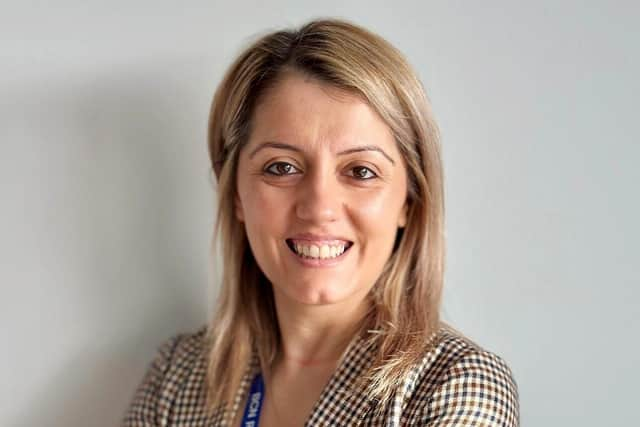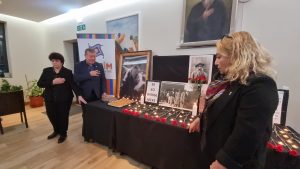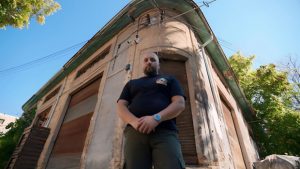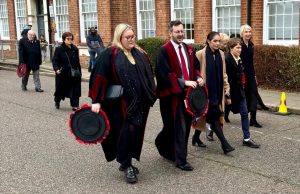Sevcan Bikim on prison service and why observing Ramadan is important to her
Sevcan Bikim MBE, 37, has worked in the prison service for nine years and will be observing Ramadan this month.
Muslim prison staff can observe the holy month’s traditions while at work, such as fasting from dawn until sunset. Other ways they’re able to observe Ramadan include suhoor, the morning meal eaten by Muslims before the sun has come up during Ramadan; iftar, the meal eaten by Muslims at sunset to break their fast, and Salah, performing five daily prayers during the holy month.
HMPPS has higher numbers of staff from diverse minority religious backgrounds than ever before, but Sevcan believes more can be done. Sevcan now works in a non-operational role as a regional lead for diversity and inclusion, care experience, health and social care and families, covering five prisons in Bedfordshire, Cambridgeshire and Norfolk.
Sevcan arrived in the UK with her family at 14-years-old from Turkey and had to overcome language and cultural barriers very quickly. But by working hard at school and university she was able to qualify as a lawyer and specialise in immigration cases.
This led to her working in Home Office immigration centres. However, after speaking with a colleague she decided to apply for a job in the prison service.
She says: “I took on the prison officer role because it wasn’t a job many other female Muslims were doing. I was thinking of the bigger picture and wanted to play a part in systemic change. You have to be willing to sit at the same table and not criticise from the outside.
“You’ve got to be strong minded. I’m very short so the prison service had to find special uniform for me because I’m so small, but I was determined.
“I dropped out of the accelerated development scheme – I could’ve become a governor in those first five years as a prison officer – but I wanted to learn the job from more experienced people and I think that earned me more respect. I was even able to use my language skills to help communicate with some prisoners.”
Sevcan found it difficult to fast during Ramadan when she had a more active role as a prison officer on the wings. Now in a non-operational role, she spreads her time between working from home and in prisons so it’s easier to plan how she observes the holy month.
Sevcan added: “Fasting and going up and down stairs for eight hours was tough, and it was hard being around people drinking tea and coffee and enjoying a biscuit.
“With how busy you get, you’re not always able to break your fast and fit in prayer times while at work, but generally it was something I was able to do and that was important to me.”
Sevcan was encouraged to pursue her career in law by her father, and working in a prison was never on the cards.
She added: “I have always felt I have to do more and be more resilient. I kept smiling and had to work hard to be accepted as part of the team. I was the one to organise team dinners so colleagues got to know me as one of them.
“I chose a harder route given my academic and legal background and, although I’ve progressed, I want to see more women in senior roles and definitely more from ethnically diverse backgrounds. I am proof there’s a pathway and opportunities to make a difference and progress your career.”









